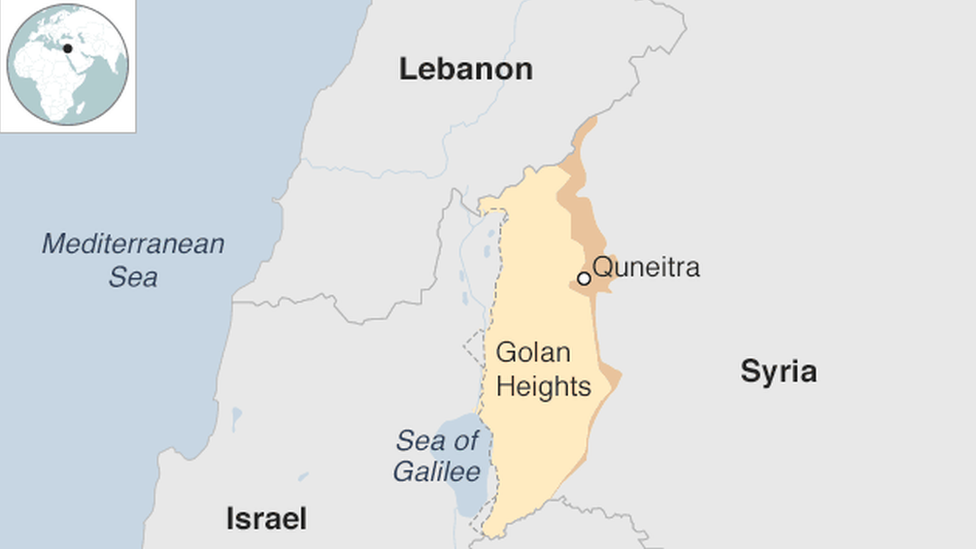Syria war: Israeli jets target Iranian positions around Damascus
- Published
An onlooker captures explosions in the night sky over Damascus.
Israel says it has hit Iranian targets around the Syrian capital, Damascus.
The Israel Defense Forces say the overnight operation targeted the elite Quds Force of the Iranian Revolutionary Guards, as well as Syrian air defences.
The Syrian military says it shot down most of the Israeli missiles. But a monitoring group reported that at least 11 pro-government fighters were killed.
The IDF says it acted after the Quds Force fired a rocket from Syria towards the occupied Golan Heights on Sunday.
Iran, Israel's arch-enemy, has sent thousands of military personnel to support Syria's President Bashar al-Assad in the country's civil war.
What do we know about the Israeli operation?
The IDF rarely admits carrying out attacks inside Syria. But it announced the start of Monday's strikes on the Quds Force in a tweet, external.
A statement issued later said Israeli fighter jets had hit munition storage sites, a site located in Damascus International Airport, an Iranian intelligence site and an Iranian military training camp.
The jets also struck several Syrian military air defence batteries after dozens of surface-to-air missiles were launched "despite clear warnings", it added.
Allow X content?
This article contains content provided by X. We ask for your permission before anything is loaded, as they may be using cookies and other technologies. You may want to read X’s cookie policy, external and privacy policy, external before accepting. To view this content choose ‘accept and continue’.

"We're operating both against Iran and against the Syrian forces that are abetting the Iranian aggression," Israeli Prime Minister Benjamin Netanyahu said.
"We'll strike at anyone who tried to harm us. Whoever threatens to eliminate us, bears full responsibility."
The Syrian Observatory for Human Rights, a UK-based monitoring group, reported that weapons depots and positions belonging to Iranian forces and the Iran-backed Lebanese militant group, Hezbollah, were hit.
It said at least 11 fighters, including two Syrians, were killed.
What does the Syrian military say?
Syria's state-run Sana news agency quoted a military source as saying it "confronted an Israeli attack", external and "prevented it from achieving its objectives".
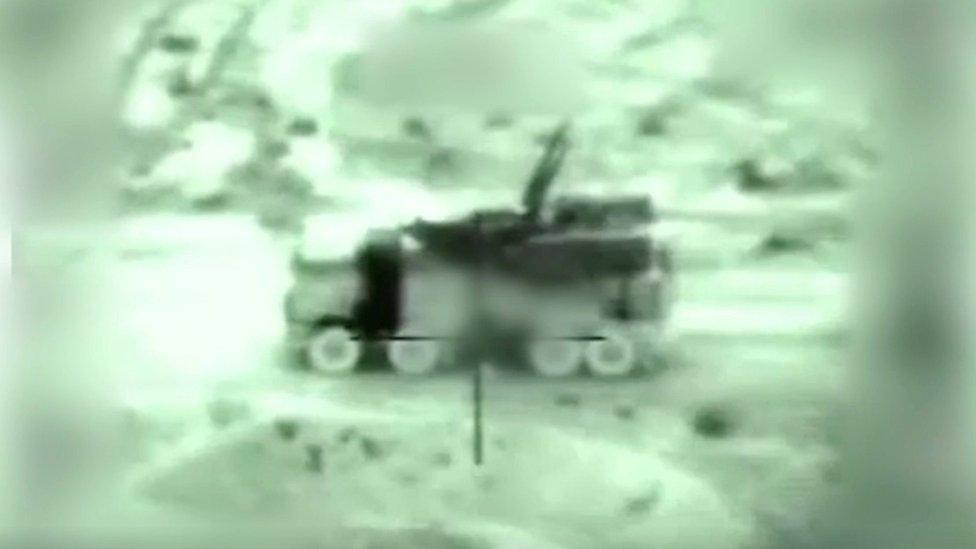
The IDF said it targeted Syrian air defence batteries after they ignored warnings not to fire
"Our air defences dealt with the situation and intercepted the hostile missiles, downing most of them before reaching their targets as they continue their heroic response to the aggression," the source added, without mentioning any casualties.
The Russian military, which like Iran also backs the Syrian government, said more than 30 missiles and guided bombs were shot down.
However, it added that the "infrastructure" of Damascus International Airport was partially damaged and that four Syrian soldiers were killed and six were wounded.
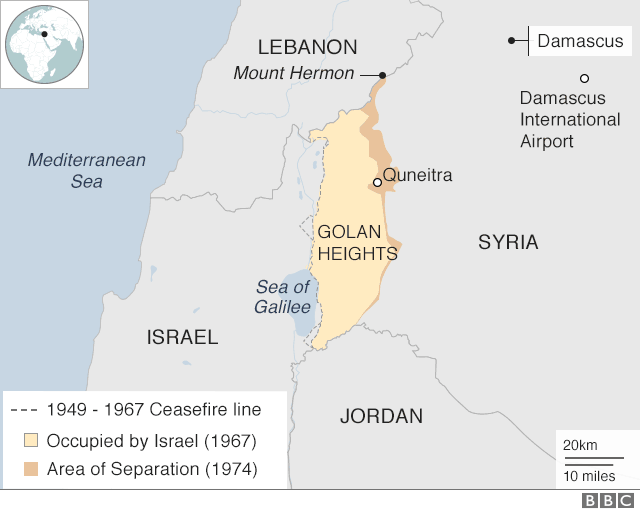

There was no immediate comment from Iran. But the head of its air force, Brig Gen Aziz Nasirzadeh, said the country was "fully ready and impatient to confront the Zionist regime and eliminate it from the Earth", according to the Young Journalists' Club website.
What prompted Israel to strike?
The operation came a day after the IDF said the Quds Force had launched an Iranian-made surface-to-surface rocket from Syrian territory towards the northern Golan Heights, which was intercepted by the Iron Dome air defence system.
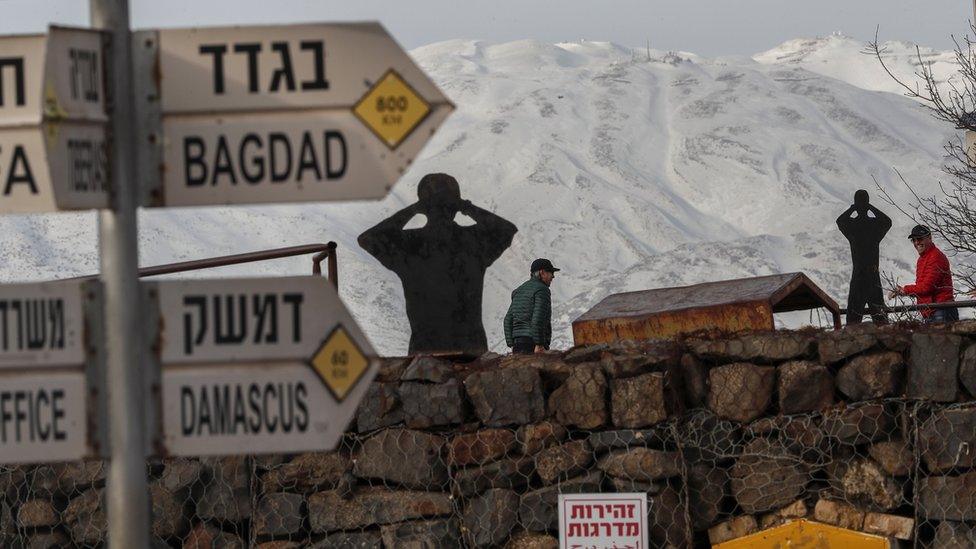
The IDF said a rocket fired by the Quds Force endangered skiers at a resort on Mount Hermon
IDF spokesman Lt Col Jonathan Conricus said the rocket endangered thousands of Israeli civilians at a ski resort on Mount Hermon in the Israeli-occupied Golan Heights.
The rocket launch followed a reported Israeli air raid on Damascus airport on Sunday afternoon, which a Syrian military source said air defences also "thwarted".

New rules of the game
By Jonathan Marcus, diplomatic correspondent, BBC News
The strategic context on Israel's northern border is changing. All the major actors are trying to influence the new rules of the game. President Assad has survived; in large part due to Iranian support. President Trump is pulling out US ground forces from Syria. And Russia, which also backs Mr Assad, is eager to put its diplomatic stamp on future developments.
It is this new context that - in part - explains Israel's greater willingness to speak publicly about its air campaign.
The strategic dialogue between Israel and Russia continues at a high level. Only last week senior Russian officers were in Israel for talks. But Russia has not persuaded the Syrians to remove or contain Iran's growing presence.
Israel's war of attrition is set to continue. But the firing of a missile from Syria, which prompted an additional wave of Israeli strikes, shows just how dangerous things are becoming.

How often does Israel attack Iranian targets in Syria?
Until recently the IDF rarely commented on reports of strikes. But it has become increasingly open about its attempts to dislodge Iranian forces.
Earlier this month, IDF's now former military chief-of staff Lt Gen Gadi Eisenkot told the New York Times the IDF had struck "thousands" of targets, external since Syria's civil war began in 2011.
Until two-and-a-half years ago, the IDF mainly struck Iranian weapons shipments destined for Hezbollah, he said.
Iran then changed its strategy significantly, seeking to build a 100,000-strong force of Shia militia fighters from Pakistan, Afghanistan and Iraq and constructing intelligence bases at Syrian air force facilities, he added.
Gen Eisenkot said that in January 2017 he had obtained the government's consent to change the IDF's tactics and strikes in Syria began to take place almost daily.
- Published26 December 2018
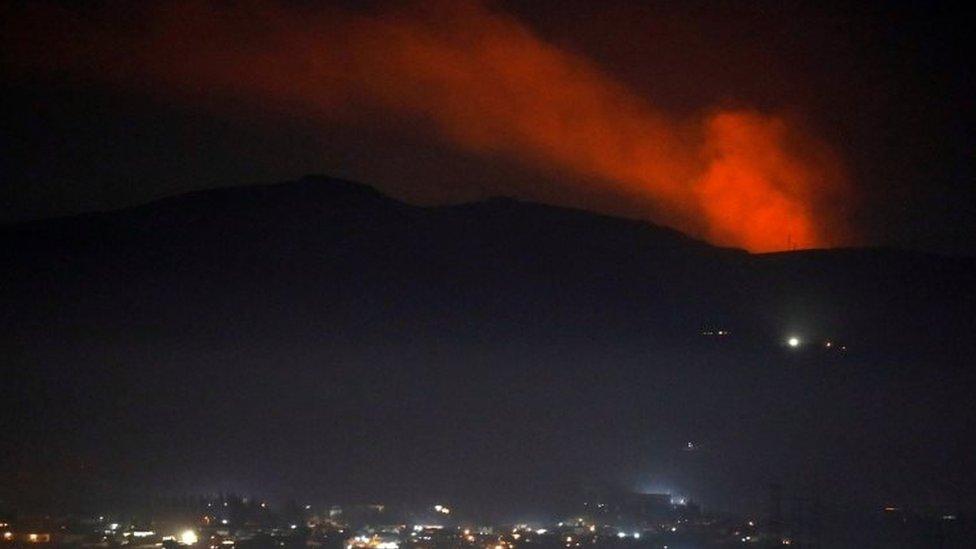
- Published10 May 2018
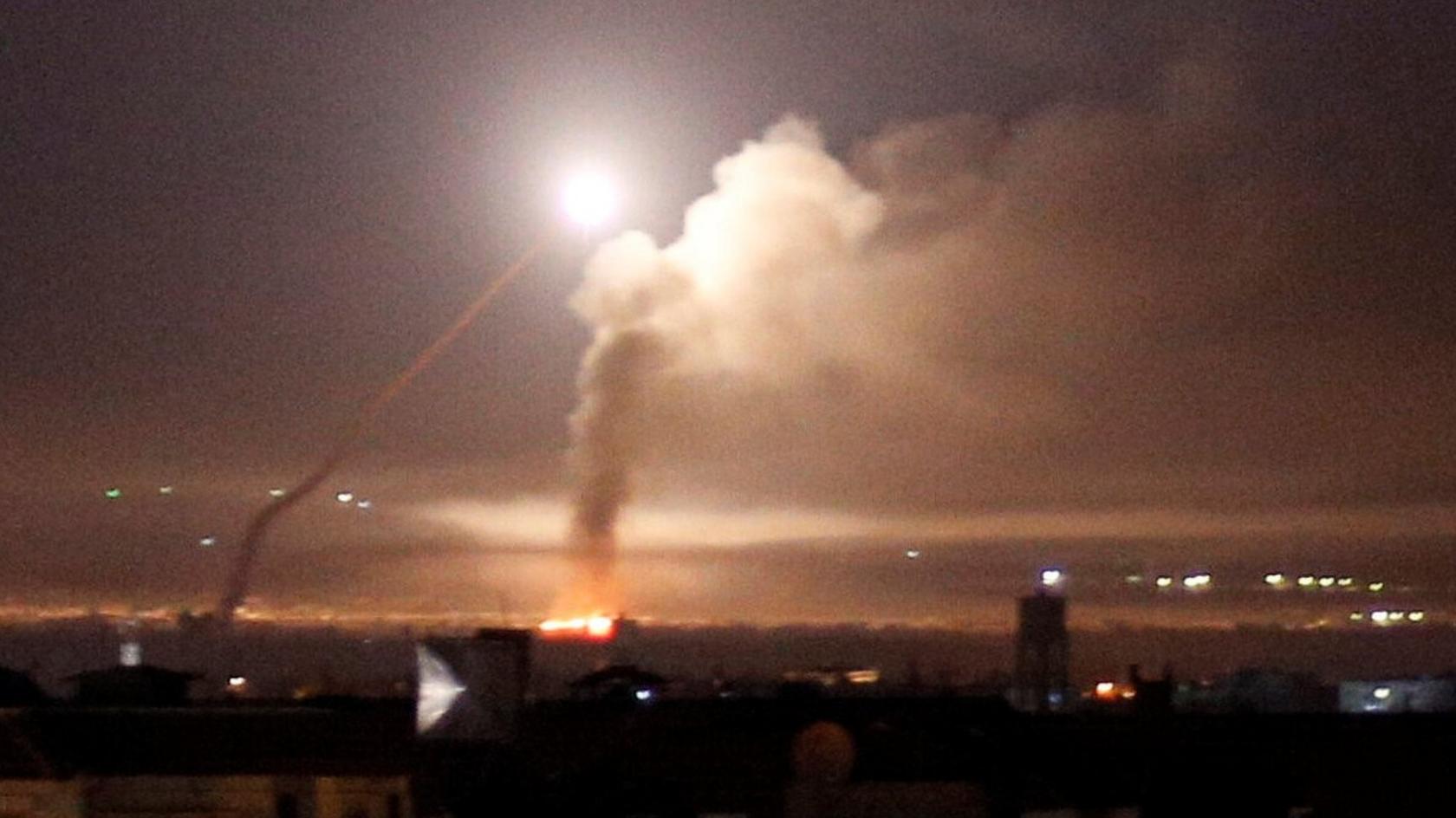
- Published10 May 2018
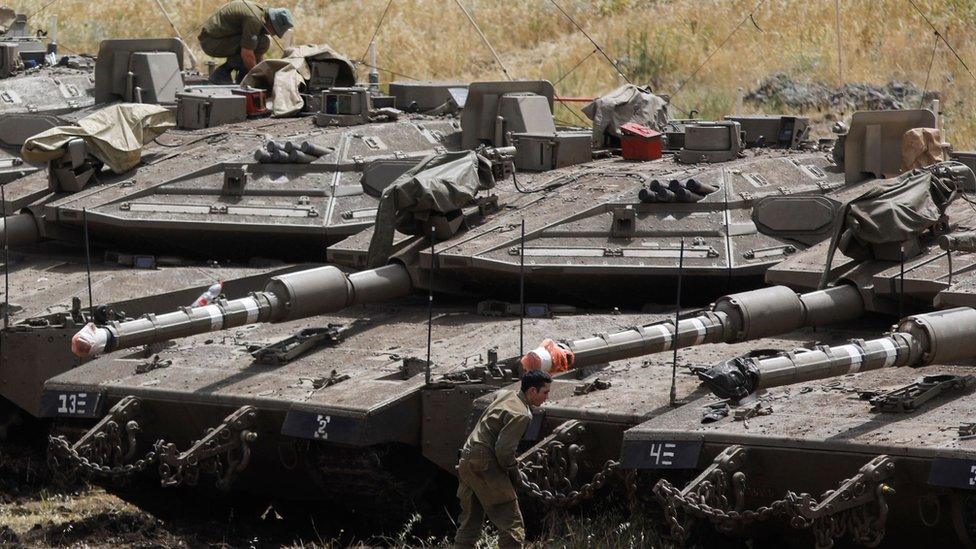
- Published10 May 2018
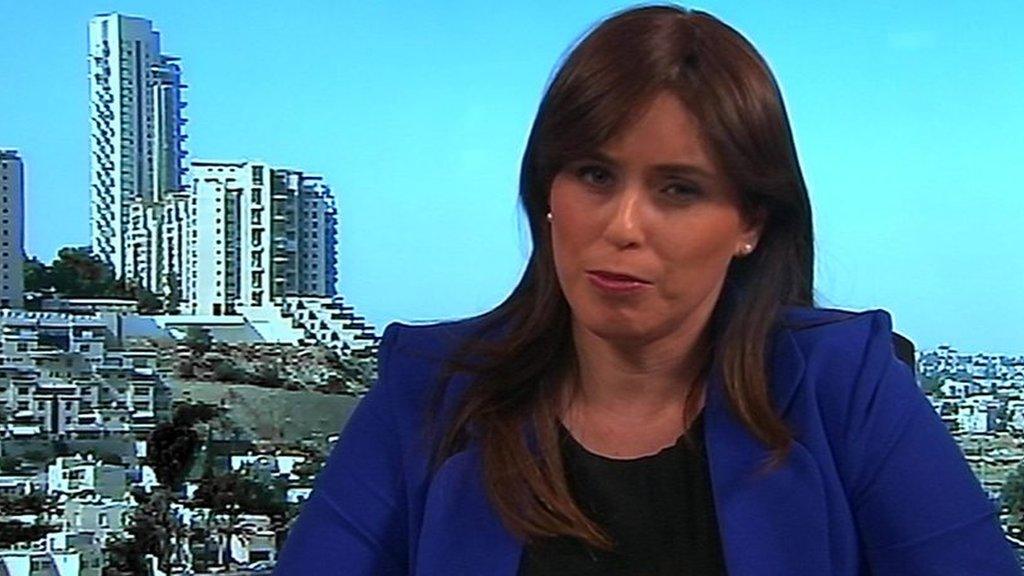
- Published10 May 2018
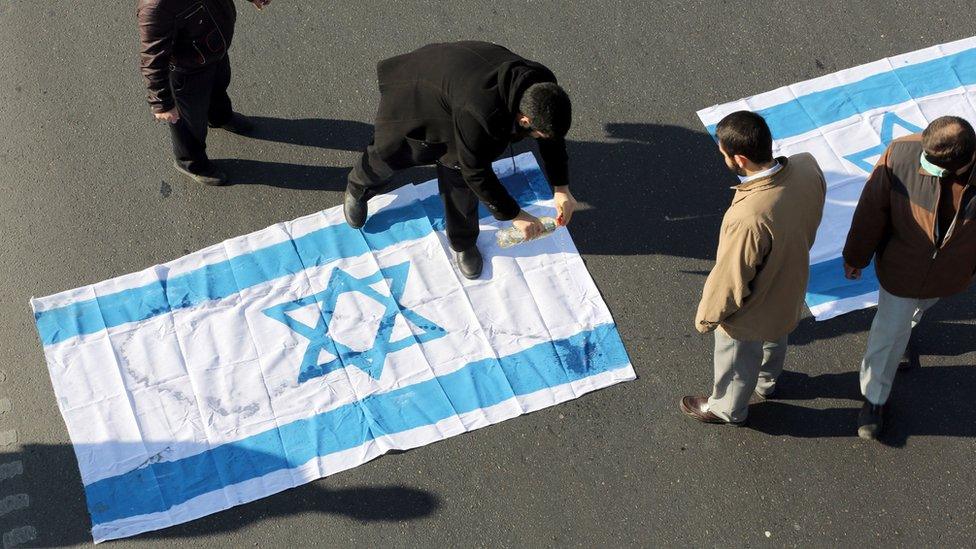
- Published9 May 2018
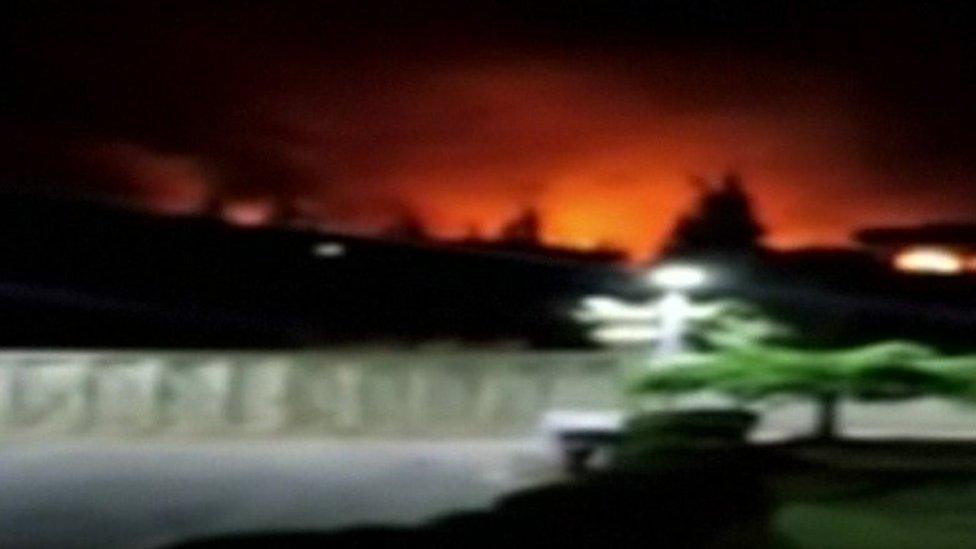
- Published2 May 2023

- Published29 August 2023
